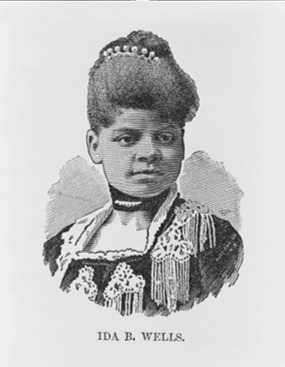The newly won rights to suffrage were soon challenged after the end of Reconstruction with the removal of the last federal troops in the South in 1877. Ex-Confederates in statehouses across the South passed legislation to disenfranchise Black voters and enforce racial segregation. Control was also imposed on the formerly enslaved with terror, including public killings known as lynchings. According to the National Association for the Advancement of Colored People (NAACP), at least 4,743 lynchings occurred in America between 1882 to 1968. Over seventy percent of all lynching victims were Black. One of the founders of the NAACP was the journalist and civil rights pioneer Ida B. Wells (1862–1931). Wells was born into slavery, and her forceful writings documenting lynchings and exposing racial segregation while a newspaper owner in Memphis, Tennessee, were reprinted in other Black-owned periodicals nationwide. In the 1880s Wells sued the Chesapeake and Ohio Railway for discrimination when she was forced out of her first-class accommodations. A similar lawsuit against the East Louisiana Railroad known as Plessy v. Ferguson resulted in a decision of the US Supreme Court in 1896 that laws enforcing racial segregation were constitutional so long as the separate facilities were equal in quality. The offices of Wells’ Memphis newspaper were destroyed by a rampaging mob in 1892, and she later moved to Chicago, Illinois, where she continued her writing and activism. Millions of other Black men, women and children would leave the South for relief from racial discrimination and in search of economic opportunities. The Great Migration of people to the Northeast, Midwest, and West proceeded in several waves over the succeeding decades.
